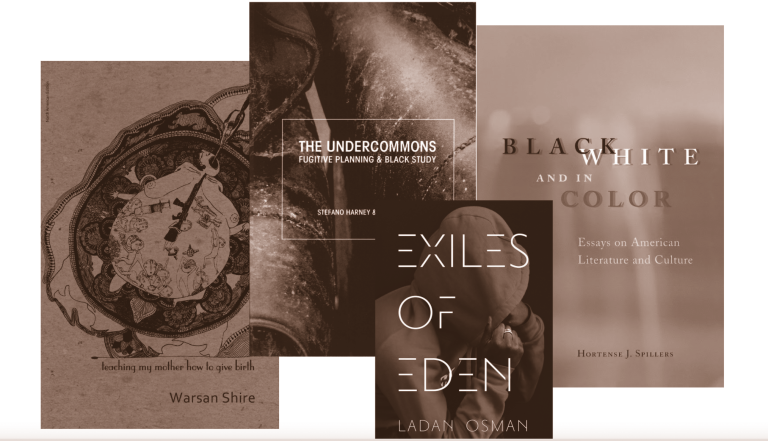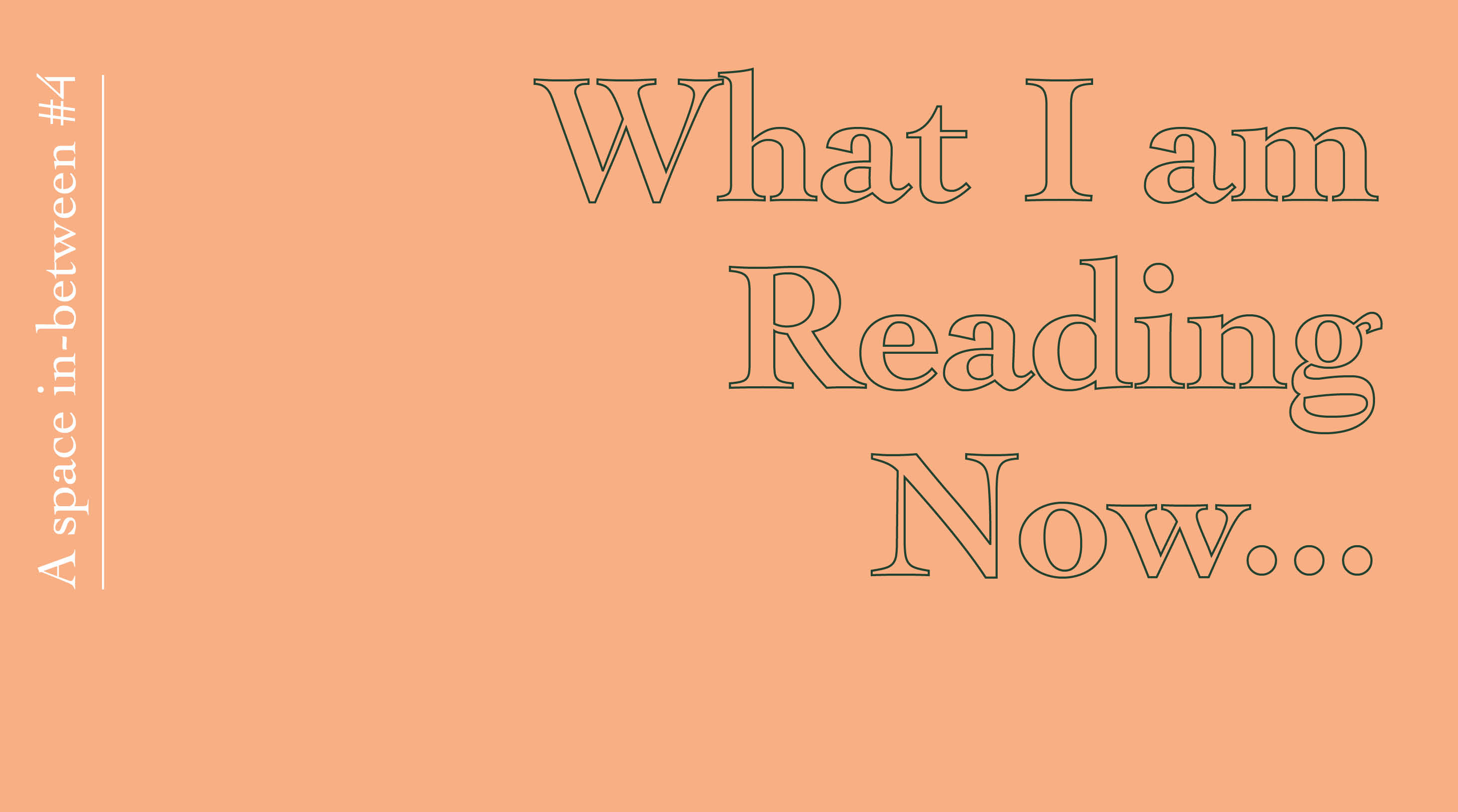What I am Reading Now…
Serubiri Moses
October 2021
I tend to read and re-read certain texts as their meaning shifts and collates over time, as I look at them again and again. This is similar to looking at photographs, which I believe one has to look at again and again and again to arrive at any sustained kind of seeing. What does it mean to see or what does it mean to listen? These are questions that preoccupy me while I go about my reading. I have taught, in the course of last year, as an adjunct assistant professor in the Art and Art History department at Hunter College on 68th street, Manhattan, New York. And have of course transitioned to zoom, with everyone. My reading is often (but not always) guided by the syllabi I have organised to teach. I wanted to share the texts that have accompanied me through rough and unstable times, such as the ones we have all seen recently. Two Somali poets (one British and the other American) have been constantly coming back to me.
I have read and re-read the poem ‘Refusing Eurydice’ by Ladan Osman. It is published in Osman’s poetry collection called Exiles of Eden (2019). Even before I properly knew the story of Eurydice as it is written in the Greek texts, I was moved tremendously by these lines by Osman: “We refuse death by discourse. / We refuse death by exile. / We refuse death by falling, / and we refuse death in depressions.” The other poem that I have read and reread is ‘Trying to Swim with God’ by Warsan Shire included in the poetry collection Teaching My Mother How to Give Birth (2011). It includes these words, “My mother says no one can fight it / the body returning to God.”
In my courses, I have taught work that tends to be beyond the remit of art history. This includes two of Prof. Hortense Spillers’s powerful essays: one titled, ‘Formalism Comes to Harlem’, included in her essay collection Black, White, and in Color: Essays on American Literature and Culture (2003). In the essay, Prof. Spillers writes that: “I would prefer to begin to talk about Afro-American literature in the following terms: Intent on producing works of filiation, advocacy, preservation, convocation (a literature whose principal movement is informed by an external narrative), black American writers tend to rehearse a metaphorical valuation of human apprenticeship.” She writes this stunning passage in response to black American novelist Toni Morrison’s critics. This thematic of apprenticeship appears again in the other essay by Prof. Spillers that I teach in my courses. The Idea of Black Culture (CR: The New Centennial Review, Vol 6, No. 3, Winter 2006, pp 7-28) which also appears as a lecture (available on YouTube). In it, she engages two powerful thinkers: Herbert Marcuse and W. E. B. Du Bois. Following both thinkers and their writings on culture, she refers to “the intramural disposition of specific cultural projects” and wrestles with the fact that “black culture could, by virtue of the very act of discrimination, become culture, insofar as, historically speaking, it was forced to turn its resources of spirit toward negation and critique.”
Finally, this summer I have been re-reading and re-considering Fred Moten and Stefano Harney’s book, Undercommons: Fugitive Planning and Black Study(2013) as I have been teaching a five-week course at the independent art school, Dark Study. My students and I have been trying to understand what it means to abandon the academy, or the university, perhaps in a way that recalls philosopher Gayatri Spivak’s concept of ‘affirmative sabotage.’ We have often lingered and revisited the quote, “The student does not intend to pay.”
Serubiri Moses is an independent writer and curator, who has been appointed part-time faculty at the Center for Curatorial Studies, Bard College, and recently served as adjunct assistant professor in the Art and Art History Department at Hunter College. He is co-curator of MoMA PS1’s survey of contemporary art, Greater New York, and previously was on the curatorial team of the 10th Berlin Biennale of Contemporary Art. His current research focus is on theories of Black and African art. Recent publications and conference talks include: ‘Violent Dreaming’. e-flux journal. 107. March 2020; ‘Death as a Premonitory Sign’. Singapore Art Biennial Symposium. February 2020. Moses lives and works in New York City.
Reading
Exiles of Eden, Ladan Osman (Coffee House Press, 2019)
Teaching My Mother How to Give Birth, Warsan Shire (Flipped Eye Publishing Limited, 2011)
Black, White, and in Color: Essays on American Literature and Culture, Hortense J. Spillers (University of Chicago Press, 2003)
The Idea of Black Culture, Hortense J. Spillers (CR: The New Centennial Review, Vol 6, No. 3, Winter 2006, pp 7-28)
Undercommons: Fugitive Planning and Black Study, Fred Moten and Stefano Harney (Minor Compositions, 2013)

Please note the views published in What I am Reading Now… are personal reflections of the contributors.
These may not necessarily represent the views of the University of Dundee.
———
Previous Issue: Rehana Zaman, September 2021
Next Issue: Yayra Sumah, November 2021
